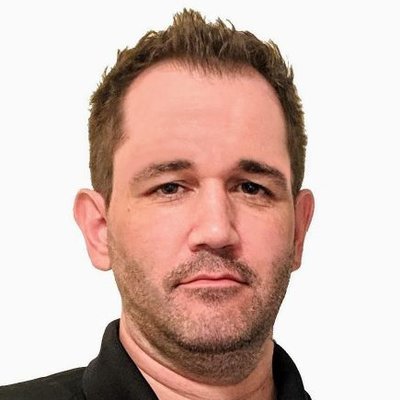📝 by Patrick Williams
Fit.
It had to be the right fit for Joel Bouchard.
A friend of Benoit Groulx’s from their days in the Quebec Major Junior Hockey League, Bouchard is well aware of who he is replacing as head coach of the Syracuse Crunch. But the chance to head up the Tampa Bay Lightning’s top development team is one he’s looking forward to.
“It’s a great challenge,” said Bouchard, who was named the 10th head coach in Crunch franchise history on Monday, “but it’s a bit of mixed emotions. Ben is a close friend of mine and did such a tremendous job in Syracuse the last seven years. But from my end it’s an opportunity to work with a great organization that’s proven time and time again in the NHL and the AHL that they’re competitive and they have the will to win.”
For the 49-year-old Bouchard, Syracuse will be his third AHL coaching stop after posts with the Laval Rocket and San Diego Gulls. He takes over for Groulx, the Crunch’s all-time leader in coaching wins (256) who will be offered another position within the Lightning organization.
“It’s a great franchise,” Bouchard said. “It’s exciting. To go back behind the bench — but most importantly beyond the ice with the players and to help them be the best version of themselves, to see them grow in the American League — it’s quite exciting for me.”
Bouchard will bring some of Groulx’s same characteristics to the Syracuse dressing room. He’s passionate. Extremely demanding. There is that fire.
“Well, I’m me,” Bouchard said with a laugh. “With everything that comes with it.”
But he will also be himself. He was a sixth-round pick by the Calgary Flames in 1992 who went through 15 pro seasons as a defenseman on the NHL-AHL bubble, someone who went through the recalls and AHL assignments, played for winning and losing teams, and experienced all that the hockey industry can throw at a player.
“The most important thing from my end,” Bouchard said, “is to make sure that I give everything I can with the coaching staff to the players so they become the best version of themselves. It’s always been the case.
“There’s not one player that’s sitting in front of me in the office and saying, ‘Well, he doesn’t know how I feel.’ Because I’ve lived it all as a player. I’ve been sent down. I’ve been called up. I’ve been injured and had to go back. I had to invent myself to make sure I was able to go back to the NHL. So I want to connect with the player.”
Bouchard, who played 364 games in the NHL for eight different teams, describes his style as “what you see is what you get.”
“I like to think that I’m demanding,” he said. “I put the bar very high, but if they want to play in the NHL, we have to put the bar very high, because it’s not going to get easier when you get there. I respect the player because I know how hard it is to be a player, and I want the best for them.”
Bouchard spent three seasons with Laval, the last two shortened by the pandemic. He lasted only one season in San Diego, but he took away lessons from a team that had its highs and lows, and a roster that he had to learn coming in as the new face behind the bench after leaving a familiar and comfortable set-up with the Rocket.
“I learned to find solutions,” Bouchard recounted of his time in San Diego. “Coaching is all about finding solutions, thinking outside the box, and not looking for excuses.
“You always can learn something and push yourself,” he continued. “If I’m going to ask the players to be a better version of themselves, I have to ask myself to be a better version of myself. Your worst enemy is the mirror every morning. We all know that, and I think that we have to stay true to our principles, to ourselves, to what we believe is right for the group but also every person.”
As Bouchard spends this summer planning to lead the Crunch next season, he will again face the task of learning a new team and building an environment that both prepares players for Tampa Bay and wins games in Syracuse.
“We learn in the good, and we learn in the bad. We’ve got to make mistakes. I mean, a coach makes mistakes all the time behind the bench. I think the most important thing is to really be close to the player through that process. I’m not smart enough to be complicated, and I’m not smart enough to play mind games, so we have to work together.”
TheAHL.com features writer Patrick Williams has been on the American Hockey League beat for nearly two decades for outlets including NHL.com, Sportsnet, TSN, The Hockey News, SiriusXM NHL Network Radio and SLAM! Sports, and was most recently the co-host of The Hockey News On The ‘A’ podcast. He was the recipient of the AHL’s James H. Ellery Memorial Award for his outstanding coverage of the league in 2016.






































